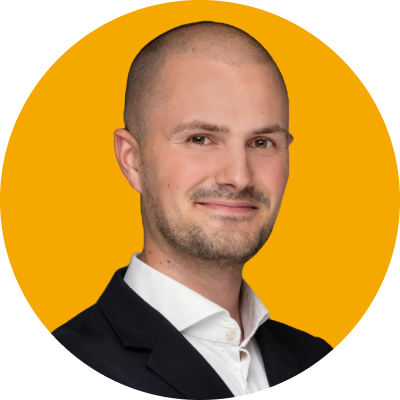Michael Schnürle
Senior Consultant, Frankfurt, Germany
Michael Schnürle's impressive career spans several key areas including hotel development, operator search and contract negotiation, strategic evaluation, feasibility studies, asset management, and market repositioning.
Bio
Michael Schnürle, Senior Consultant at Horwath HTL Germany, brings extensive expertise in hotel development, operator search and contract negotiation, strategic evaluations, feasibility studies, asset management, and market repositioning. His career is distinguished by his ability to develop innovative concepts and effectively represent owners in complex projects.
Michael's professional journey spans key roles in food and beverage management, hotel consulting, and hotel development, contributing to his deep understanding of the hospitality industry. In 2012, he successfully established and led the Horwath HTL Brasil office in São Paulo, cementing the firm’s presence in the South American market. Following this, he joined B&B Hotels, where he was instrumental in the development of the chain's first properties in Brazil.
His academic achievements include an MBA in Business Administration from USP São Paulo, a specialized program in Hotel Real Estate Investments and Asset Management from Cornell University, a qualification as a Hospitality Technologist from SENAC São Paulo, and training in Financial Planning at Anhembi Morumbi University in São Paulo.
Fluent in German, English, and Portuguese, Michael’s multilingual capabilities enable him to navigate the global hospitality market with ease, fostering effective communication and collaboration across diverse regions. His combination of practical experience, strategic insight, and academic excellence makes him a key asset to Horwath HTL Germany and a trusted advisor to clients worldwide.
Michael's Experience
Bold steps forward
We help clients achieve extraordinary outcomes.
Dutch Hotel Portfolio Valuation
Berlin and Osnabruck, Germany
Independent Feasibility Study Evaluation
Belgrade, Serbia
Feasibility Study for Proposed Concept
Neuss, Germany
Operational Analysis & Digital Transformation for SV Group
Multiple locations, Germany
PreOpening Support for Steigenberger GrandHotel and Spa
Heringsdorf, Germany
Strategic Operational Advisory
Biberach, Germany
Feasibility Study for TU Dresden University
Grillenburg, Germany
Feasibility Study for F&B Leases
Koblenz, Germany
Expert insights
Cutting edge analysis.
Emerging trends in hotel design
To understand this development, it’s worth taking a closer look at the key societal themes shaping our time–topics directly reflected in how we think, act, and design. The eleven megatrends identified by the Zukunftsinstitut (Future Institute) illustrate this clearly: Sustainability has become a central factor in economic and social decision-making. At the same time, both an aging population and the younger Generation Z are placing more value on health and well-being. Urbanization, new work models, and growing digital connectivity are blurring the lines between work and leisure. While digital processes enhance efficiency, they also increase the desire for individuality and meaningful time with friends and family. Additionally, rising prosperity in Asia is bringing new guests with fresh expectations and tastes to the European hotel market. To meet all these expectations, simply following short-lived design trends is not enough. Design today goes far beyond aesthetics. It has become clear that a hotel must become a destination in itself by telling a unique story closely tied to its location and local character. A simple, pared-down design speaks to the current mindset. These principles also work well for budget hotels, where digitalization, sustainability, and minimalism can create individualized, cost-effective offerings. Hoteliers must increasingly think in terms of experiences and create environments that foster a sense of emotional connection, culture, and community. Carefully chosen, durable materials and thoughtfully designed spaces provide long-term value for both guests and operators. So far, so good, but what do these values look like in practice? Imagine you’re setting off on a little journey… …You’ve chosen an exceptional five-star hotel in the Swiss Alps for a short getaway. From the moment you arrive, it’s clear that luxury here is celebrated in a sustainable and relaxed way: instead of a stiff concierge, you’re welcomed warmly and casually. Through large panoramic windows, your gaze falls directly on the majestic Matterhorn as you explore the vibrant bazaar— A journey within the journey, where the culture of the Silk Road meets the Matterhorn, filled with aromas, colors, and handcrafted treasures. You stay in one of 54 thoughtfully designed rooms, where sustainable materials and warm, natural tones create a cozy, alpine feel. A fireplace and a bathtub with views of the mountain landscape complete the serene atmosphere. Soft natural light streams through large windows, while elements like wood, stone, and water foster a sense of peace and connection with nature. A tablet lets you adjust lighting and temperature to your liking. There’s no minibar or TV—intentionally left out to enhance real relaxation and presence. After settling in, you take time to recharge. The hotel’s wellness offering includes a sauna, yoga and meditation sessions, treatments, and outdoor bathtubs in selected rooms. You’re already planning the days ahead: hiking, mountain biking, climbing, or skiing. Your stay promises both relaxation and adventure. For dinner, you opt for “Ferdinand” and enjoy Swiss favorites like fondue and raclette. Sustainability is a guiding principle throughout the hotel from locally sourced ingredients to eco-friendly energy solutions. This hotel is far more than just a place to stay. It’s a destination of inspiring moments and mindful indulgence. You’re already thinking about returning, especially since the flexible room layout is perfect for sharing the experience with your whole family. Back from your journey and returning to reality, it becomes clear that today’s hotel design values are defined by conscious simplicity and a natural, individual aesthetic. Authentic and thoughtful design, blending sustainable materials, regional identity, and warm tones, sets the tone. Digital tools allow for tailored guest experiences and greater comfort. Spaces are adaptable to meet the changing needs of travelers whether for work, leisure, or time with loved ones. Gastronomy, wellness, and cultural offerings are no longer extras, they are essential parts of the guest experience, rooted in sustainability and local character. In short, the hotel of the future won’t just offer accommodation. It will become a destination in its own right: authentic, sustainable, flexible, and digitally connected. Those who embrace these trends and implement them consistently will not only inspire guests but ensure long-term success regardless of whether they operate in the budget or luxury segment.

International investors reshape the german-speaking hotel market
The recent acquisition of Munich-based hotel group Motel One by French investor PAI Partners underscores the growing interest of international investors in the German-speaking hotel market.

Between visibility and independence – the dominant market position of Booking.com
The online travel agency (OTA) Booking.com was founded in Amsterdam in 1996 and is now one of the best-known international booking portals for vacation accommodation.

The economic importance of tourism in Germany
Tourism is not only one of the most important economic factors worldwide, but also makes a significant contribution to the German economy.

New Technology in Hospitality
As part of the 14th Heilbronn Hospitality Symposium, Horwath HTL, together with the Heilbronn Hospitality Symposium, conducted a survey to assess the view of guests in hotels and guests on new technologies.

DACH Region Hotels & Chains Report 2024
Our latest report from the German, Swiss and Austrian hotel markets.




